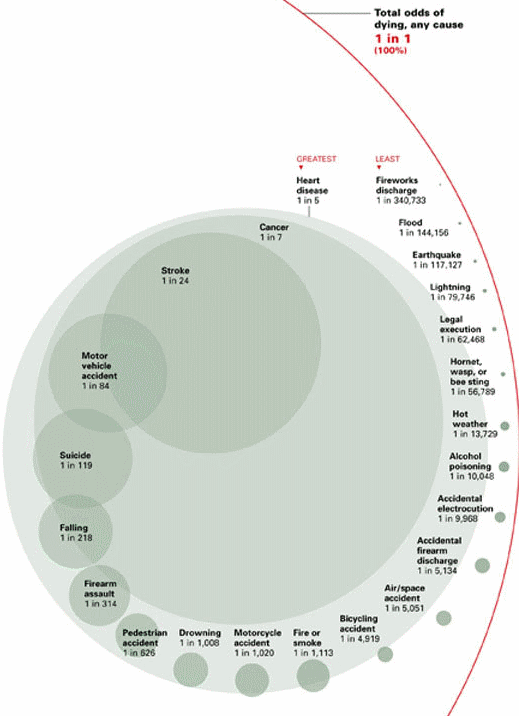Most family and friends are supportive and excited by my interest in aviation. Of course occasionally I get accosted by some that seem to thing I'm nuts. I assume I'm not alone in having friends/family tell me:
"You're crazy, do you know how dangerous that is!" (says the person that drives a motorcycle)
"Those things crash all the time! Didn't you see that story on the news last week" (says the person that just had a fender bender after texting while driving

)
I'm well aware of the risks associated with flying, including having a distant member of the family killed when the Cessna they piloted crashed.
How do you respond to such comments/questions?
I'm not too interested in arguments based on "statistics" since anyone that's ever really looked into such data quickly realizes that one can easily mold the numbers into whatever argument one is trying to make. I think we can all agree that flying has risks as do lots of other things. To me it's more about what form that risk take and ones ability to manage/mitigate it.
My comments usually following along the lines of:
- Life is full of risk. Living a full life involves taking carefully calculated risks (physically, personally and professionally). Living in a plastic bubble with a padded suit and helmet 24/7 is probably 'statisticly safer' but isn't much of a life.
- General aviation is certainly a pursuit that has a lot of risk. However, relative to many other risky activities that GA is often compared to (e.g., driving) the management of that risk is almost entirely in the hands of the pilot. This is a distinct advantage (or disadvantage depending on who's flying the plane). Case-in-point on my last drive home from the airport, the most risky moments of that drive were when I had to swerve to avoid two idiot drivers fiddling with their phones while they were drifting in and out of their lane.

- When driving in a car, much of the risk is simply being on the road. Sadly, very good drivers that did nothing wrong are killed / seriously injured when they did nothing wrong but get hit by a drunk driver, light runner, etc. The equivalent in GA is rare. The vast majority of serious GA accidents require the pilot to have performed poorly, made a poor decision (e.g. flew into conditions they had no business flying in), or reacted to an emergency in a way inconsistent with proper training. The training, skill and sharpness of the pilot is the primary thing determining safety. It's the difference between "miracle on the hudson" after a full engine failure and the Asiana pilots crashing a perfectly good 777 at SFO on a clear day.
- The whole "the most dangerous part of a plane trip is the drive to the airport" line can be supported or debunked depending on what data one uses (what flights, when, what roads, time of data, region, etc.) but what I do know is that when behind the yolk of a plane I'm in control of a much much higher percentage of the risk vs. when I'm behind the wheel of a car on a busy road. Given that knowledge I'm comfortable taking on the risks associated with General Aviation and make sure that I dedicate appropriate time and energy towards always improving and learning. If I ever get complacent or not nervous, that's the time to stop.
How do others respond?







